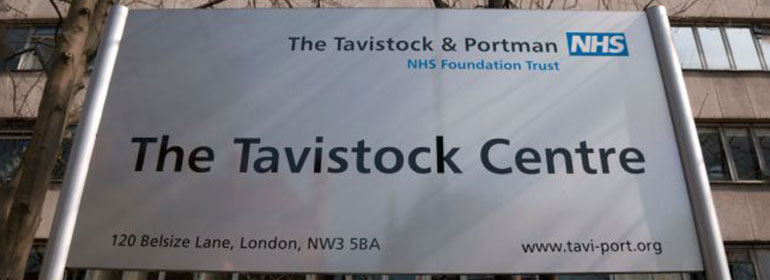Despite research continuing to show that trans people are at higher risk of self-harm, bullying and isolation, lack of funding means Irish services fall short
The number of Irish children seeking medical assistance regarding their gender identity has risen 900% since 2013, with the lack of support in Ireland causing them further distress.
In the twelve months between April 2015 and April 2016, 27 Irish children were referred to the UK’s Tavistock and Portman Foundation NHS Trust in London for assistance, nine times the number of children referred in 2012/2013.
In response to these increased figures, Tavistock established a satellite clinic in Crumlin’s Our Lady’s Hospital which runs four times a year.
However, to access this Dublin based clinic, families must use the treatment abroad scheme.
Research indicates that trans people are at greater risk of self-harm, bullying, isolation and depression.
Additionally, only 20% of children who seek help about their gender identity before adolescence go on to have sex reassignment, compared with 80% of those who seek help during puberty, an indication that the Irish government needs to put in place more services for young trans children.
A clinical psychologist from Tavistock, Dr Polly Carmichael, said that those presenting in Ireland are “without doubt” an underestimate.
“The concern is that there could be a lot of unmet need amongst young people [in Ireland] as there is not really a pathway.” Dr Carmichael said.
Additional Resources
Ireland’s LGBT youth service BeLonG To currently caters for young LGBT people between the ages of fourteen and twenty-four.
BeLonG To’s Executive Director, Moninne Griffith, indicated that their support services are already operating at capacity, and that they would require additional funding to broaden their age range to allow them to cater for younger LGBT people.
“If we had more resources we would probably open up the services for younger trans and non-binary young people,” Griffith said.
“But we can’t cope with the numbers that we have at the moment, we’re finding that really difficult.
“We’ve had to make some really challenging changes to the services to make sure that we can continue to provide the very high quality, safe services to the existing young people that are in the service and we’re just getting new young people in every week.”
Long Process
The process of getting assessed for trans children is unclear, full of delays and difficulties, Griffith said.
She explained that young trans people and their parents “tell us about the delays and difficulties in negotiating the systems or lack thereof for them to get recognition.
“So they need an assessment, or diagnosis as it’s still called unfortunately, but they need a diagnosis both for their gender recognition if they’re over sixteen, but also if they want to get medical treatment, so if they want to get hormone blockers or anything like that. There’s no one place for them to get that information.
“It’s very difficult, the HSE website doesn’t say go to your GP and do this and get them to refer you to there so the only way that they find out is really through other young people or from parents.”
Legislative Change
Broden Giambrone, Chief Executive of TENI, said that Irish legislation needed to be amended to facilitate the legal recognition of trans people under the age of eighteen.
“Legislative change is incredibly important. Trans people and their families have considerable support needs and it is clear that we still need to raise awareness about our diverse experiences.”
“Leo Varadkar is going to go back and have a look at that legislation because currently if you’re over 18 you can have a really great system for gender recognition,” Griffith said.
“But if you’re under eighteen, between sixteen and seventeen it’s quite an onerous process. And then if you’re under sixteen there’s no process at all.”
IndividualiTy
For trans and non-binary children between the ages of fourteen and twenty-four, BeLonG To run a peer support group called IndividualiTy.
“The group IndividualiTy is the peer support group that we support here in BeLonG To and they meet every second Wednesday,” Griffith said.
“There are between 30 and 40 young trans and non-binary young people who meet up every Wednesday, and that’s between 5:30pm and 7:30pm.
“It happens in the Office of the Ombudsman for Children because we don’t have enough space here in Parliament St.
They’re a great bunch of young people. It’s primarily a peer support group but they also work on advocacy. So there’s a subgroup of them working with us in relation to the review of the gender recognition legislation.”
© 2017 GCN (Gay Community News). All rights reserved.
